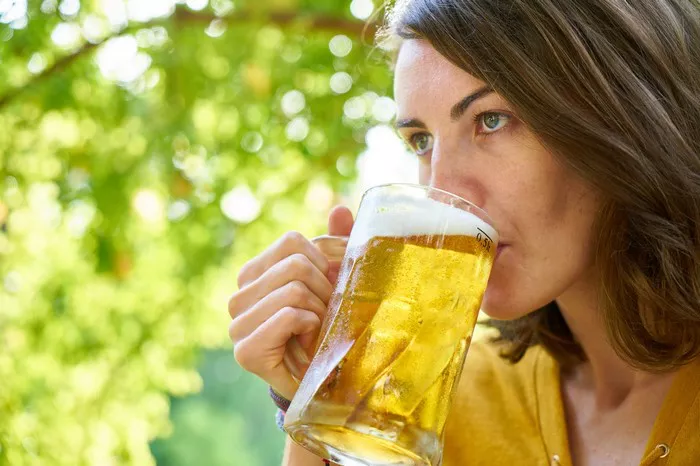When it comes to iconic brews that have stood the test of time, Heineken beer undoubtedly reigns supreme. Its distinctive green bottle, adorned with a red star, is instantly recognizable in bars, restaurants, and households worldwide. But beyond its visual appeal and crisp taste lies a question that often piques the curiosity of beer enthusiasts: what percentage of alcohol does Heineken beer contain? In this comprehensive exploration, we delve into the alcohol content of this renowned Dutch lager, uncovering the facts behind its potency.
Origins and Legacy: The Story Behind Heineken Beer
Before delving into the specifics of its alcohol content, it’s essential to understand the rich heritage and legacy of Heineken beer. Established in 1864 by Gerard Adriaan Heineken in Amsterdam, the Heineken brewery swiftly rose to prominence, thanks to its commitment to quality and innovation. Over the decades, Heineken evolved from a local Dutch beer to a global phenomenon, with its products being enjoyed in over 190 countries. The distinctive flavor profile, characterized by its balanced bitterness and refreshing finish, has solidified Heineken’s position as a staple in the beer market.
Craftsmanship and Ingredients: The Making of Heineken Beer
Central to the allure of Heineken beer is its meticulous brewing process, which combines tradition with modern techniques. The key ingredients of Heineken beer include water, malted barley, hops, and a unique A-yeast strain, which imparts the brew with its characteristic flavor profile. The brewing process involves several stages, including mashing, lautering, boiling, fermenting, conditioning, and packaging, each executed with precision to ensure consistency and quality.
Alcohol by Volume (ABV): Understanding Heineken Beer’s Potency
One of the primary factors that define a beer’s strength is its alcohol by volume (ABV) percentage, which represents the proportion of alcohol in relation to the total volume of the beverage. In the case of Heineken beer, the ABV typically ranges between 5% and 5.4%, depending on the variant and market. This moderate alcohol content contributes to Heineken’s sessionable nature, making it suitable for casual consumption and social gatherings.
Variants and Special Editions: Exploring Heineken’s Diverse Portfolio
While the classic Heineken Lager Beer remains the flagship product of the brand, Heineken has expanded its portfolio to cater to diverse consumer preferences and occasions. Variants such as Heineken 0.0, a non-alcoholic beer, offer a guilt-free alternative for those seeking the distinctive Heineken experience without the alcohol content. Additionally, special editions and collaborations, such as Heineken’s UEFA Champions League editions, add a touch of exclusivity and excitement to the brand’s offerings.
Global Presence and Cultural Impact: Heineken Beer’s Influence Worldwide
Heineken beer’s global reach extends far beyond its Dutch origins, permeating cultures and societies across the globe. Whether enjoyed in the bustling streets of Tokyo, the vibrant pubs of Dublin, or the sunny beaches of Rio de Janeiro, Heineken beer serves as a universal symbol of conviviality and enjoyment. Its ubiquitous presence in popular culture, including appearances in films, music videos, and sporting events, further cements its status as an icon of the beer industry.
Consumer Preferences and Trends: The Role of Heineken Beer in Today’s Market
In an era marked by an increasingly diverse array of alcoholic beverages, Heineken beer continues to resonate with consumers seeking a reliable and familiar choice. Its timeless appeal, coupled with strategic marketing initiatives and innovative product developments, ensures its relevance in a competitive landscape. Moreover, the rising demand for premium and craft beers has prompted Heineken to introduce artisanal offerings, catering to discerning palates and expanding its market share.
Sustainability and Corporate Responsibility: Heineken’s Commitment to Ethical Practices
Beyond its commercial success, Heineken is committed to environmental stewardship and social responsibility. The company has implemented various sustainability initiatives aimed at reducing water consumption, minimizing carbon emissions, and promoting responsible drinking practices. Additionally, Heineken’s partnerships with local communities and organizations underscore its dedication to making a positive impact beyond the realms of brewing.
Future Prospects and Innovations: What Lies Ahead for Heineken Beer
As we look to the future, Heineken remains poised for continued growth and innovation in an ever-evolving market. With an emphasis on sustainability, diversity, and consumer-centricity, the brand is well-positioned to adapt to changing trends and preferences. Whether through the introduction of new flavors, formats, or technologies, Heineken is committed to staying ahead of the curve while remaining true to its heritage and values.
Conclusion
In conclusion, Heineken beer’s alcohol content, typically ranging between 5% and 5.4% ABV, underscores its position as a moderate yet flavorful brew enjoyed by millions worldwide. From its humble beginnings in Amsterdam to its global prominence today, Heineken beer continues to captivate consumers with its exceptional craftsmanship, diverse portfolio, and enduring legacy. As we raise our glasses in celebration, let us toast to the timeless allure of Heineken beer and the camaraderie it fosters among beer lovers everywhere. Cheers to Heineken – a true icon of the brewing world.


